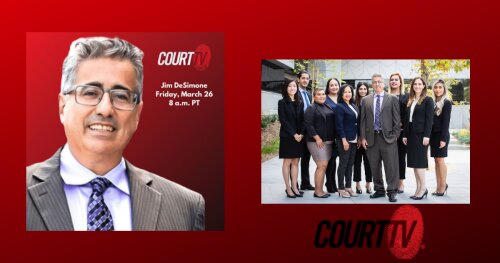Best Job Discrimination Lawyers in California
Share your needs with us, get contacted by law firms.
Free. Takes 2 min.
Or refine your search by selecting a city:
List of the best lawyers in California, United States
About Job Discrimination Law in California, United States
Job discrimination occurs when an employer treats an applicant or employee unfairly because of specific protected characteristics. In California, both state and federal laws make it illegal for employers to discriminate against employees or job applicants based on race, color, religion, sex, gender, gender identity, sexual orientation, pregnancy, age, national origin, disability, and other protected categories. California takes job discrimination very seriously and offers broader protections than many other states. These laws aim to create fair workplaces where everyone has equal opportunities for hiring, promotions, training, pay, and other job-related matters.
Why You May Need a Lawyer
If you believe you have been the victim of job discrimination, navigating the complaint process and enforcing your rights can be complex. Many people seek legal advice in situations such as:
- You were denied employment, promotion, or training because of a protected characteristic.
- You experienced harassment, retaliation, or unfair treatment at work.
- You were wrongfully terminated and suspect discrimination as the reason.
- Your request for accommodation for a disability or religious belief was denied.
- Pay disparity or denial of benefits without justification.
- You are unsure whether your situation qualifies as discrimination.
- Your employer failed to stop discrimination or harassment after you reported it.
An experienced job discrimination attorney can help assess your situation, explain your rights, gather evidence, and represent you during complaints or lawsuits.
Local Laws Overview
California has strong anti-discrimination laws enforced by agencies like the Department of Fair Employment and Housing (DFEH), now called the California Civil Rights Department (CRD). The main state law is the Fair Employment and Housing Act (FEHA). Key aspects include:
- FEHA applies to employers with five or more employees and covers a wide range of protections, including race, religion, color, national origin, sex, gender identity or expression, sexual orientation, age (40 and above), marital status, pregnancy, medical conditions, genetic information, disability, and military or veteran status.
- FEHA prohibits discrimination in hiring, firing, promotions, compensation, and all terms or conditions of employment.
- California law also prohibits retaliation against employees who report discrimination or participate in investigations.
- Separate state laws apply to accommodations for pregnant employees, breastfeeding parents, and persons with disabilities.
- California often provides broader protections than federal law, including additional protected categories and stricter employer obligations.
- The law requires employers to take reasonable steps to prevent and promptly correct discrimination and harassment.
- Claims must often be filed with the CRD before going to court, and deadlines can be strict.
Frequently Asked Questions
What is considered job discrimination in California?
Job discrimination happens when an employer treats someone unfairly in hiring, firing, pay, promotions, or other employment actions based on protected characteristics such as race, religion, sex, disability, age, or other protected status.
Who is protected under California's job discrimination laws?
California law protects employees, job applicants, and in some cases, independent contractors from discrimination. Protected characteristics include, but are not limited to, race, color, ancestry, national origin, religion, sex, gender identity, sexual orientation, age, disability, medical condition, marital status, and veteran status.
What should I do if I experience job discrimination?
Document the incidents, keep records or communications, report the issue to your employer through internal complaint procedures, and consider contacting a lawyer or the California Civil Rights Department for further guidance.
How do I file a job discrimination complaint in California?
You can file a complaint with the California Civil Rights Department, which investigates discrimination claims. In most cases, you must file within three years of the alleged discrimination.
Can an employer retaliate against me for reporting discrimination?
No, retaliation for reporting discrimination, filing a complaint, testifying, or participating in an investigation is illegal under California law. If retaliation occurs, you may have an additional claim.
Is harassment the same as discrimination?
While related, harassment refers to unwanted conduct based on a protected characteristic that creates a hostile work environment, while discrimination refers to adverse job actions because of those characteristics.
What remedies are available if I win a discrimination claim?
Remedies can include job reinstatement, back pay, promotion, changes to workplace policies, damages for emotional distress, and sometimes punitive damages.
Do I need to quit my job before filing a complaint?
No, you do not need to quit your job to report or pursue a discrimination complaint. In fact, it is often advisable to consult with an attorney before making major employment decisions.
Are small businesses covered by California discrimination law?
Most anti-discrimination protections under FEHA apply to businesses with five or more employees. Some harassment protections apply regardless of the employer's size.
Can I bring a lawsuit directly, or do I need to file a complaint with a government agency first?
Usually, you must file a complaint with the California Civil Rights Department and receive a right-to-sue notice before starting a lawsuit in court.
Additional Resources
If you need more information or wish to report job discrimination, consider the following resources:
- California Civil Rights Department (CRD) - Handles and investigates discrimination complaints.
- Equal Employment Opportunity Commission (EEOC) - The federal agency for workplace discrimination.
- Local legal aid organizations and bar associations - Many offer free or low-cost consultations.
- Workers' rights advocacy groups - Many nonprofit organizations offer support, information, and representation for employees facing discrimination.
- California Department of Industrial Relations - Provides general information on workplace rights.
Next Steps
If you believe you have experienced job discrimination, act quickly, as there are time limits for pursuing claims. Start by documenting all incidents and communications relevant to your case. Review your employer's procedures for reporting discrimination and make an internal complaint if possible. If the issue is not resolved or you face further mistreatment, contact the California Civil Rights Department for guidance or to file a complaint. Consider consulting with an experienced attorney who specializes in employment law to assess your situation and protect your rights. Attorneys can help you understand your options and represent you during investigations, settlement negotiations, or lawsuits.
Lawzana helps you find the best lawyers and law firms in California through a curated and pre-screened list of qualified legal professionals. Our platform offers rankings and detailed profiles of attorneys and law firms, allowing you to compare based on practice areas, including Job Discrimination, experience, and client feedback.
Each profile includes a description of the firm's areas of practice, client reviews, team members and partners, year of establishment, spoken languages, office locations, contact information, social media presence, and any published articles or resources. Most firms on our platform speak English and are experienced in both local and international legal matters.
Get a quote from top-rated law firms in California, United States — quickly, securely, and without unnecessary hassle.
Disclaimer:
The information provided on this page is for general informational purposes only and does not constitute legal advice. While we strive to ensure the accuracy and relevance of the content, legal information may change over time, and interpretations of the law can vary. You should always consult with a qualified legal professional for advice specific to your situation.
We disclaim all liability for actions taken or not taken based on the content of this page. If you believe any information is incorrect or outdated, please contact us, and we will review and update it where appropriate.
Browse job discrimination law firms by city in California
Refine your search by selecting a city.















